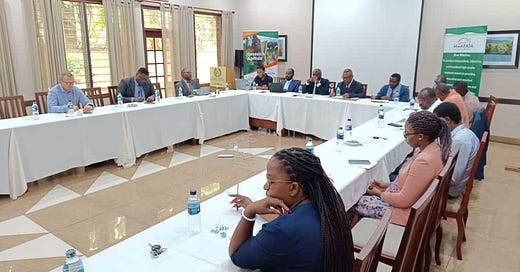Soil health crucial for agriculture, says research institute
Speaking passionately, Mkandawire emphasized the potential of converting large amounts of urban waste into valuable manure.
LILONGWE, Malawi - Mwapata Institute has called on Malawi to explore new approaches to urban waste in order to address declining soil health and agricultural sustainability, writes Bridgette Mwanoka.
"Such initiatives could play a crucial role in supporting smallholder farms and sustaining communities in metropolitan catchment areas," said Prof. Richard Mkandawire, Mwapata Institute board chair, at an editors breakfast on Thursday.
Speaking passionately, Mkandawire emphasized the potential of converting large amounts of urban waste into valuable manure.
He said Malawi is losing substantial resources due to nutrient depletion, with millions of tonnes of soil ending up in water bodies.
Mkandawire proposed quantifying nutrient loss in economic terms, arguing fertilizers alone cannot address soil depletion.
Additional mechanisms are needed, he said.
Malawi is grappling with depleted soils and significant vegetative cover loss, making investment in soil health imperative, Mkandawire said.
He urged a shift towards conservation to prevent further degradation.
Mwapata Institute collaborates closely with government, institutions and agencies, achieving success through evidence-based research that informs national decision-making.
Dr. Andrew Jamali, research manager at the National Planning Commission, stressed the need for thorough analysis to guide policy and programs to tackle the emerging agricultural challenge of poor soil health.



